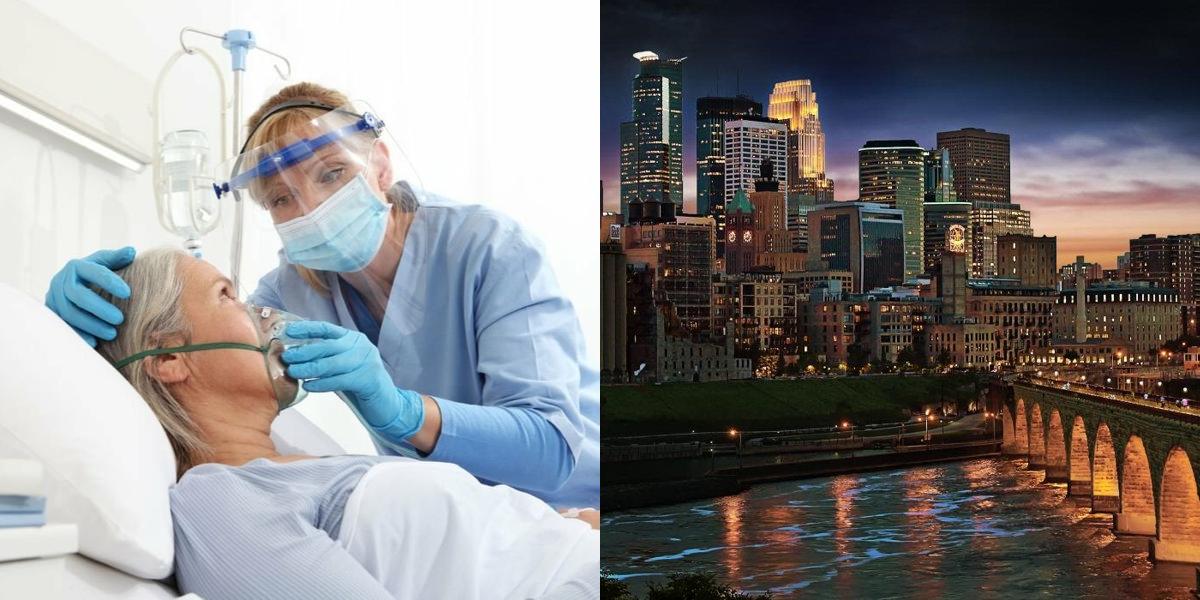How to Become a Respiratory Therapist in Minnesota

Dreambound, a leading provider of healthcare education programs, offers a comprehensive guide on how to become a respiratory therapist in Minnesota. If you're passionate about helping others and are interested in pursuing a rewarding career in healthcare, respiratory therapy may be the perfect fit for you. In this article, we will walk you through the steps to become a respiratory therapist in Minnesota, including the educational requirements, licensing process, and job opportunities available in the state.
Preparing for the Certification Exam
While licensure is a requirement to practice as a respiratory therapist in Minnesota, many professionals also choose to pursue additional certifications to enhance their skills and marketability.
The National Board for Respiratory Care (NBRC) offers several specialized certification exams for respiratory therapists, including the Certified Respiratory Therapist (CRT) and Registered Respiratory Therapist (RRT) credentials. These certifications demonstrate a higher level of expertise and can open up additional career opportunities.
Maintaining and Renewing Your License
Once you have obtained your respiratory therapist license, it's important to maintain and renew it regularly to ensure ongoing compliance with state regulations. The Minnesota Board of Medical Practice has specific requirements for license renewal, including continuing education credits and documentation of professional competency.
Respiratory therapists are encouraged to stay updated on the latest advancements in the field by participating in continuing education programs, workshops, and conferences. This not only helps to maintain licensure but also ensures that therapists are providing the best possible care to their patients.
Job Opportunities for Respiratory Therapists in Minnesota
With the increasing demand for healthcare services, the job outlook for respiratory therapists in Minnesota remains positive. Respiratory therapists can find employment opportunities in various healthcare settings, ranging from hospitals and clinics to home health care services and rehabilitation centers.
Hospitals and Clinics
Hospitals and clinics are the primary employers of respiratory therapists, providing an array of opportunities to work in a dynamic and fast-paced environment. Within these settings, respiratory therapists may work in various departments, including critical care units, emergency rooms, and neonatal intensive care units (NICU).
Home Health Care Services
As the healthcare industry continues to evolve, an increasing number of individuals are opting for home health care services. Respiratory therapists play a crucial role in providing respiratory care to patients in the comfort of their own homes. This includes managing chronic respiratory conditions, educating patients and their families on proper self-care techniques, and ensuring the overall well-being of patients.
Rehabilitation Centers
Rehabilitation centers focus on helping patients recover and regain optimal respiratory function after an illness, injury, or surgical procedure. Respiratory therapists work closely with rehabilitation teams to develop individualized treatment plans and assist patients in achieving their recovery goals.
With a strong educational foundation, relevant licensure, and the right skill set, respiratory therapists in Minnesota have numerous job opportunities available to them. As the demand for respiratory care continues to grow, this profession offers stability, competitive salaries, and the satisfaction of making a positive impact on patients' lives.
Whether you're just starting your educational journey or considering a career change, Dreambound's respiratory therapy programs and classes can provide you with the knowledge, skills, and hands-on experience necessary to succeed in this rewarding field. Take the first step towards your dream career as a respiratory therapist in Minnesota with Dreambound today!
Final Thoughts
Becoming a respiratory therapist in Minnesota is a fulfilling and challenging career path. It requires dedication, ongoing education, and a commitment to providing quality care to patients with respiratory conditions. By following the steps outlined in this guide and taking advantage of Dreambound's programs and classes, you can embark on a successful journey towards becoming a respiratory therapist in Minnesota.
Remember, respiratory therapists play a vital role in healthcare, making a difference in the lives of patients every day. If you're passionate about helping others and have a keen interest in respiratory health, consider this rewarding career path. With the right education and training, you can make a meaningful impact as a respiratory therapist in Minnesota.
Explore Dreambound's in-depth guides, each shedding light on the unique requirements and challenges in cities across the US. For more insights, be sure to check out our other guides.
- Respiratory Therapist classes near me in Bakersfield
- Respiratory Therapist classes near me in Dallas/Fort Worth
- Respiratory Therapist classes near me in Jackson
- Respiratory Therapist classes near me in Omaha
- Respiratory Therapist classes near me in Spokane
Weighing the possibilities of a career shift ? Dreambound has written many extensive guides to guide you in making informed decisions. Check out some of these resources below:

Athena is Co-founder and CEO of Dreambound.



